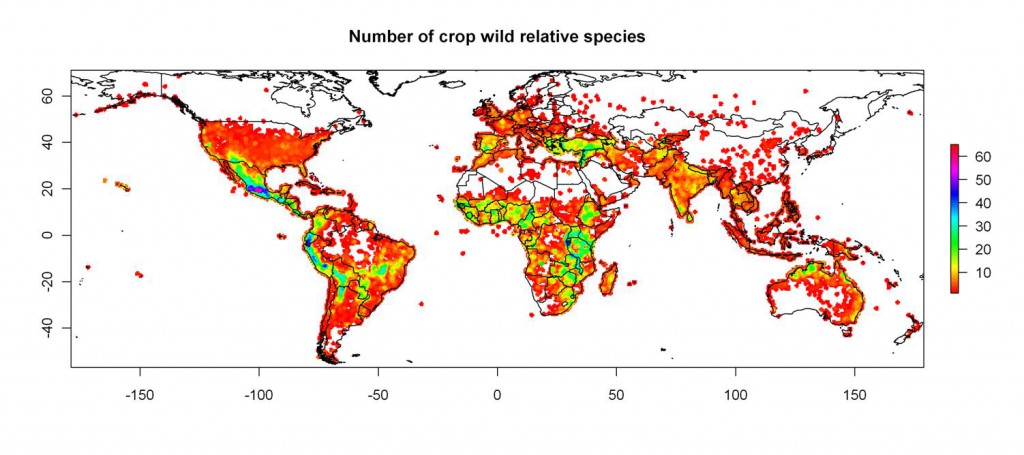- Resistance to coffee rust found in India, though not clear where. Now for the hard part …
- Arguments for Payments for Ecosystem Services. Matt points to a conference in 2013, but where are the actual payments?
- “Rather than decrying development in India and China we should be strenuously objecting to agrofuels.” So lets distinguish agrofuels from biofuels.
- Today’s new genebank is in Israel. Bet there are some crop wild relatives in there.
- Those Mayans were boffo agricultural engineers.
- “Alcohol-free” cannabis. I don’t understand any of this.
- A gene associated with flowering time has alleles associated with a rainfall gradient. h/t Jacob. Cool.
Nibbles: Nagoya, Viet Nam, Mexico, Haiti
- The UK’s take on Nagoya? “In the end it was a great success.” Really, it was.
- ILRI outlines project to protect local livestock breeds in Viet Nam.
- Another day, another genebank (in another language).
- Haiti told to get growing. “I’ve worked in some severely affected countries, including Rwanda, Zimbabwe and Mali, but I have never seen such a suppressed agricultural system as we saw in Haiti.” Louise Sperling speaks truth to power.
Yes, Nagoya backs ITPGRFA, kinda sorta
The Q&A on the Nagoya Protocol with UNEP expert Balakrishna Pisupati has only elicited three questions so far, but at least Dr Pisupati seems to agree with Bioversity’s Michael Halewood on what the Protocol means for the ITPGRFA:
This agreement is to be read in support of the ITPGRFA. Parties to the CBD had long discussions on the relationship between this Protocol and the ITPGRFA and came to the conclusion that it will not run counter to the objectives or scope of the ITPGRFA and will be complimenting the provisions under the ITPGRFA.
Phew!
Views of Nagoya
Whether or not crop wild relatives were mentioned, Nagoya was good for plant genetic resources for food and agriculture, at least according to Bioversity’s Michael Halewood.
Nagoya Protocol on Access and Benefit Sharing from Bioversity International on Vimeo.
Meanwhile, George Monbiot is not sure Nagoya happened at all.
Did wild relatives get a boost at Nagoya?
I think I may have Nibbled the fact that IUCN released a few days ago at Nagoya the results of a massive study of the global pattern of threat to vertebrate diversity. Here’s the money map:
Also to coincide with Nagoya, IUCN collaborated with Kew and the Natural History Museum, London on a global analysis of extinction risk for the world’s plants.
And of course, the A-Z Guide of Areas of Biodiversity Importance was launched at a side event at COP 10. The press release is on the UNEP website.
Compare and contrast with this map Julian Ramirez of CIAT has kindly sent me, showing the richness of wild relatives of a dozen or more major crops. Question for anyone who was at Nagoya: were livestock and crop wild relatives discussed during the proceedings?
I ask because in a recent posting on the Crop Wild Relatives discussion group, Nigel Maxted suggests that launching an initiative to “(establish) … a Global Network of CWR Protected Areas is now a real priority, along with systematic ex situ conservation!”
So what happened?

